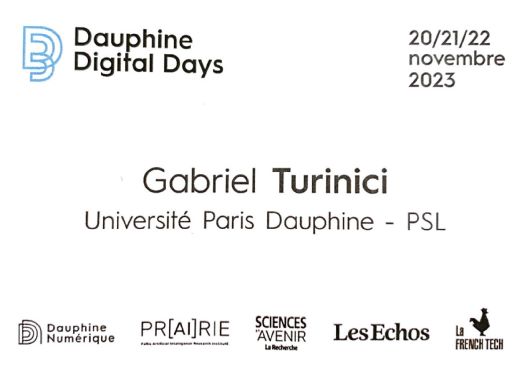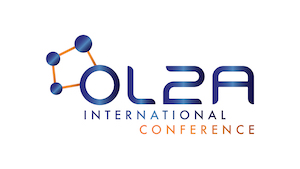This is a talk presented at Nanmat conference held Nov 4-7 2024 at ICTP, Cluj.
Talk materials: ![]() the slides of the presentation. and here the
the slides of the presentation. and here the  Youtube video version.
Youtube video version.
personal page
This is a talk presented at Nanmat conference held Nov 4-7 2024 at ICTP, Cluj.
Talk materials: ![]() the slides of the presentation. and here the
the slides of the presentation. and here the  Youtube video version.
Youtube video version.
General chair with C. Lefter and A. Zalinescu of the conference FAAI24 « Foundations and applications of artificial intelligence » Iasi Oct 28-30 2024. At the conference I also serve as tutorial presenter.
Invited joint talk « Using LLMs techniques for time series prediction » with Pierre Brugiere presented at the 6th JP Morgan Global Machine Learning conference held in Paris, Oct 18th 2024
Talk materials: slides(click here) and here a link to the associated paper.
Co-organizer with E. Catinas of the « Numerical Analysis » sessions at « Le 16ème Colloque Franco-Roumain, Bucarest, Roumanie »
A short interview with Celine Loozen from ‘France Culture’ radio station within a radio program concerning AI and GAFAM ethics.
Link for the full radio broadcast
Interview with Celine Loozen : here (local version if necessary here)
Intervention at the round table « AI and medias: when everything is accelerating » at the Dauphine Digital Days held Nov 20-22 2023 at the Université Paris Dauphine – PSL, Paris, France.
Video version: from minute 09:00
Conference badge 🙂 
This is a talk presented at Nanmath conference held Nov 6-9 2023 at ICTP, Cluj..
Talk materials (click to open or download): ![]() the Slides of the presentation, the ArXiv preprint and the
the Slides of the presentation, the ArXiv preprint and the ![]() Youtube VIDEO.
Youtube VIDEO.
This is a talk presented at ACDSDE conference held Sept 28-30 2023 at the Romanian Academy (Iasi station), Octav Mayer Institute of mathematics.
Talk materials: ![]() the slides of the presentation.
the slides of the presentation.
This is a talk presented at OL2A: « International Conference on Optimization, Learning Algorithms and Applications 2023 », September, 27 – 29, 2023, Ponta Delgada (Portugal) 
Talk materials: ![]() the slides of the presentation.
the slides of the presentation.
This is a talk presented at
Talk materials: ![]() the slides of the presentation.
the slides of the presentation.